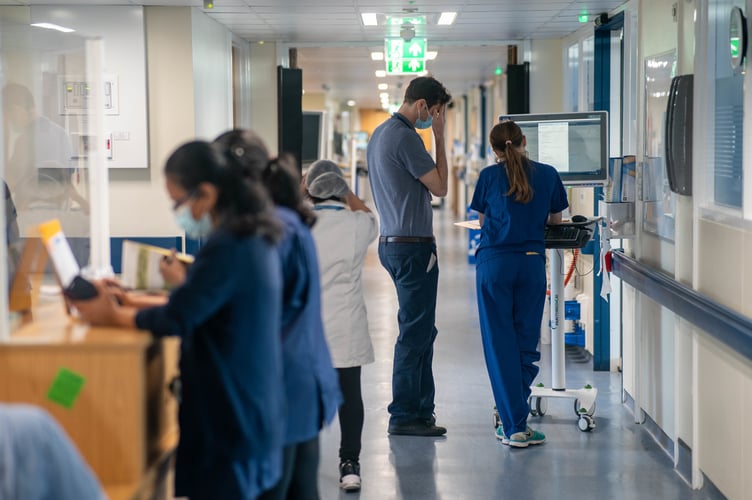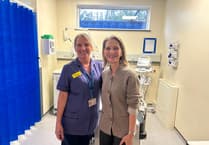Tens of thousands of patients were waiting for routine treatment at the University Hospitals of Bristol and Weston in July, figures show.
Across England, the waiting list for planned hospital treatment has risen for the second month in a row.
It comes after resident doctors in England staged five consecutive days of strike action in July, in a dispute with the Government over pay.
NHS England figures show 54,179 patients were waiting for non-urgent elective operations or treatment at University Hospitals Bristol and Weston NHS Foundation Trust at the end of July – down from 55,123 in June, and 58,637 in July.
Of those, 716 (1%) had been waiting for longer than a year.
The median waiting time from referral at an NHS Trust to treatment at the University Hospitals of Bristol and Weston was 12 weeks at the end of July – the same as in June.
Nationally, an estimated 7.4 million treatments were waiting to be carried out at the end of July, relating to 6.25 million patients, up from 7.37 million treatments and 6.23 million patients at the end of June.
A total of 191,648 people in England had been waiting more than 52 weeks to start routine hospital treatment at the end of July, down slightly from 191,813 at the end of June.
Some 2.6% of people on the list for hospital treatment had been waiting more than 52 weeks in July, unchanged from the previous month.
Professor Meghana Pandit, NHS national medical director, said: "Industrial action in the NHS is never easy for patients, but despite last month’s disruption record number of cancer patients got the care they needed.
"While urgent ambulance response times were the fastest they’ve been in over four years – even as A&E and ambulance staff saw more patients in August than ever before.
"These results show the NHS is always there for patients — no matter what is thrown its way."
Separate figures show 1.7 million patients in England were waiting for a key diagnostic test in July – the same as in June.
At the University Hospitals of Bristol and Weston, 13,153 patients were waiting for one of 11 standard tests, such as an MRI scan, non-obstetric ultrasound or gastroscopy at this time.
Of them, 1,856 (14%) had been waiting for at least six weeks.
Other figures show cancer patients at the University Hospitals of Bristol and Weston are not being seen quickly enough.
The NHS states 85% of cancer patients urgently referred by a GP should start treatment within 62 days.
But NHS England data shows just 78% of patients urgently referred by the NHS who received cancer treatment at the University Hospitals of Bristol and Weston in July began treatment within two months of their referral.
That was up from 75% in June, but down from 81% in July last year.
Oncologist and chair of Radiotherapy UK Prof Pat Price said the figures continue "a recurring nightmare" for patients, families, and NHS staff.
She added: "We keep hearing that improving cancer survival depends on early diagnosis, but that is only partly true. It is vital that urgent action is taken to stop treatment delays.
"Every four weeks of delay increases the risk of death by around 10%."
Health and Social Care Secretary Wes Streeting said: "One year ago, I made a promise that we would deliver two million extra appointments in our first year – not only did we do this in just five months, but we have obliterated that target, carrying out over five million.
"That is testament to the relentless efforts of NHS staff across the country, alongside key reforms to get waiting times down for patients.
"Our 10 Year Health Plan will go even further, driving care out of our busy hospitals and into local communities as we deliver the radical transformation required to fix our broken health service."




